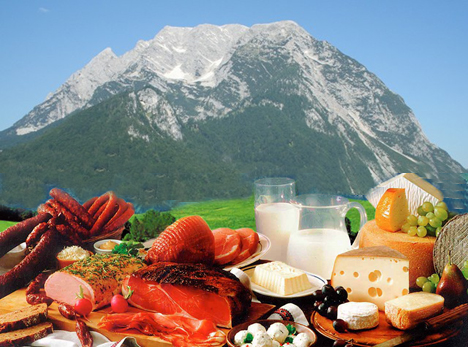However, a guarantee of origin is of the utmost interest
to interested customers and to maintaining a functioning small-scale A lack of scientific methods to verify geographical indications is a key reason why some
large producers can either obscure origin or allow themselves to mislabel products.
We have therefore set ourselves the goal of developing new methods of determining origin in order to
protect both the consumer and the small farming structure, especially in Styria. As part of this project
, it is planned to develop chemical-analytical methodology based on trace elements in order to
reliably determine the geographical origin of regional agricultural products such as eggs, chicken meat, milk, vegetables and Christmas trees.
In the case of products from conventional agriculture (e.g. greenhouse vegetables, chickens, eggs), it is to be expected that the
element composition will correspond to the commercially available substrate (e.g. rock wool mat) for the plants or the
feed for the animals and thus the soil or region-specific Differences
are no longer noticeable.
to mark the substrate or feed
by adding certain inert ultra-trace elements It is to be expected that this marking will be in the corresponding lw. products becomes visible. The use of marker elements requires long-term experiments on
farms under controlled conditions.
Through the collaboration of the Montanuniversität Leoben (MUL) with the Higher Federal Training and Research Institute for Agriculture Raumberg-Gumpenstein,
the Higher Training Institute for Agriculture and Food Economics, the Federal Training Institute for Forestry, the HLA for Agriculture and
Food Management of the Graz School Sisters School Association and the At the Admont High School, these
experiments will be implemented together with the students. The direct involvement of students in this
“research experiment” awakens interest in biochemical processes and analyzes and their application
for sustainable, regional production systems. The motivation to delve deeper into research is
strengthened by the pre-baccalaureate work that is carried out during the project.
As part of this project, feeding trials with chickens, sheep and goats are at the HBLFA
. The regularly taken samples are evaluated in the laboratory at the Montanuniversität Leoben.







